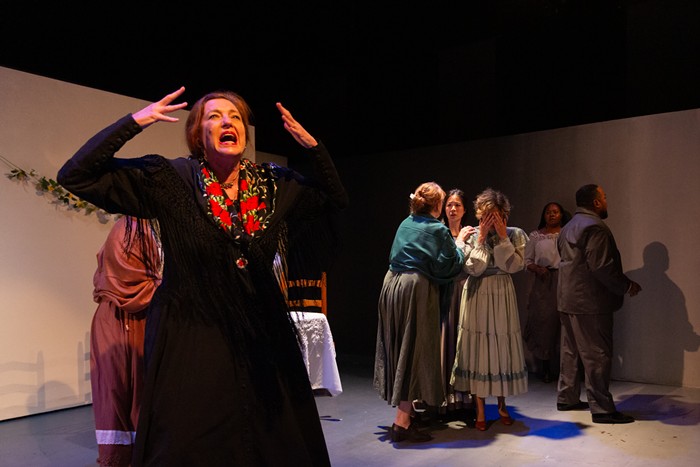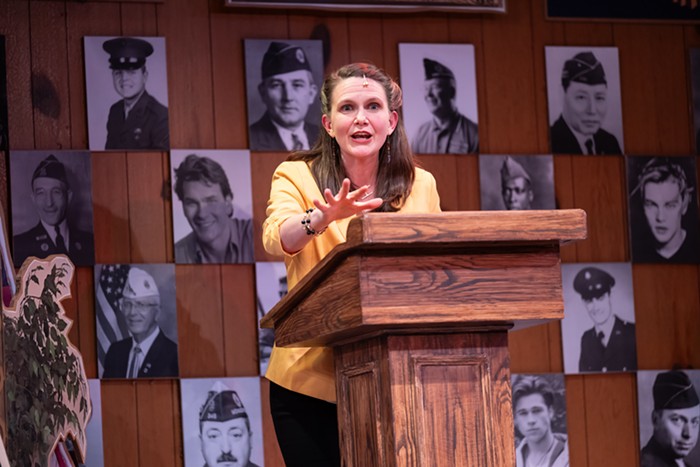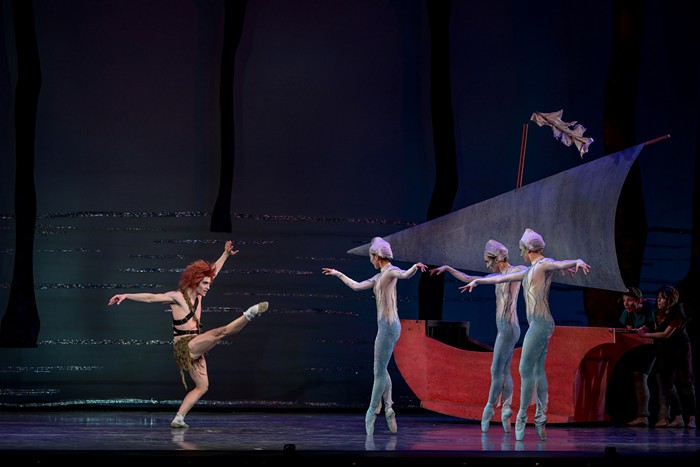THE MIRACLE THEATRE GROUP can't be faulted for their ambition in tackling an adaptation of Cervantes' canonical Don Quixote—short of adapting the Bible (hello, R. Crumb), it's hard to imagine a more high-pressure undertaking. The problem, though, inherent to Santiago García's adaptation and reinforced by the Miracle's bilingual production (en Español: El Quijote), is that the episodic nature of Quijote's questing just doesn't lend itself to the stage. Where the 900+ page book takes weeks or months to read, here it's flattened into a high-volume 120 minutes, as the man of La Mancha adopts a knight's code of honor and vainly tries to embody a book-learned chivalry, chaperoned by his faithful sidekick Sancho Panzo. Misplaced attempts at heroism lead the errant knight from one ill-fated quest to the next, and—without the ability to stick a bookmark in it and set it down for a while—El Quijote quickly takes on a numbingly repetitive quality.
Within the show's unfortunate structure, there is much to praise: Sarah Gahagan's costume design reinforces Quijote's delusions, as he dons armor made of tin cans and a colander helmet, using a sawhorse for a steed. Mark Haack's multi-purpose set is visually striking and functionally innovative—it's hard to imagine a more elegant integration of Cervantes' famous windmills than the spinning projections used here. As the titular knight, Gilberto Martín del Campo embodies a kind of misplaced valor, a nobility out of step with his time, while Danny Bruno as Sancho is a perfectly pragmatic counterpoint. The rest of the cast, each actor playing several roles, goes broad in an effort to keep the show engaging, with varying degrees of success—the 3rd Floor's Kevin-Michael Moore in particular gets decent comedic mileage out of his variety of roles. (Another 3rd Floor vet, Melik Malkasian, was similarly thrown into the mix for the Miracle's recent production of How the García Girls Lost Their Accents.)
But while commendations can be loaded on the particulars of the show, the relentless sameness of Quijote's escapades quickly bores. Attempts to break up the show's monotony by dint of sheer volume (and occasional outbursts of dance) only reinforce its numbing quality—with the exception of an interlude in which Sancho gets governorship of an island, not much stands out, while stagey, overblown acting conspires to keep the audience at arm's length. Sometimes, El Quijote demonstrates, a book really is better off as a book.



















